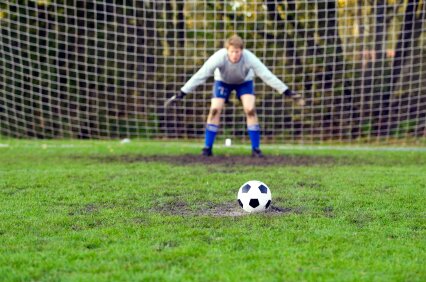Breaking the Bad Habit of Repeated Mistakes
 A recent experiment used eye-tracking technology to study soccer players and athletes’ neuroses when it came to nerves, stress, and how they affect performance. Soccer players were equipped with eye-tracking cameras and instructed to avoid a particular area of the goal while shooting penalty kicks. The players were found to regularly put the ball in the corner they weren’t supposed to.
A recent experiment used eye-tracking technology to study soccer players and athletes’ neuroses when it came to nerves, stress, and how they affect performance. Soccer players were equipped with eye-tracking cameras and instructed to avoid a particular area of the goal while shooting penalty kicks. The players were found to regularly put the ball in the corner they weren’t supposed to.
In situations where a specific outcome is desired, the unconscious mind tends to focus on avoiding mistakes. Yet, by trying to avoid errors, the frequency of committing those errors actually increases. A recent article explains that experiments have shown, for example, that “if you ask people to concentrate on suppressing prejudices like racism, sexism, or homophobia, they blatently express those biases despite—or perhaps because of—the effort to control them.”
One former major league pitcher, now a Ph.D. and pitching coach at Southern California, likes to refer to this phenomenon as “The Creature” that challenges his players on the field. Whatever you call it, it’s something that regularly affects players and non-athletes in daily tasks and conversations – a conversational slip-up or a glass of glass of spilled wine on a white carpet.
The unconscious mind starts to manifest this control during high stress situations. There have been many suggestions and attempts at controlling this counterproductive behavior of the mind, but none seem to help overtly. The most effective suggestion so far has been to acknowledge and accept the possibility of mistakes and carrying that idea around with you instead of striving for perfection and focus.
Whatever the best fix, it’s interesting and exciting to see eye tracking technology assisting humans within a wide variety of environments.
No related articles.

